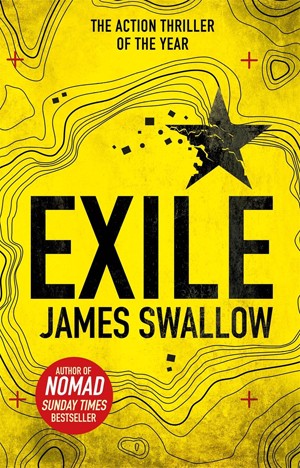
Dane is a reluctant hero, burned by the British security services after an operation went wrong and foisted onto the UN’s Nuclear Security Team. Part-analyst, part-field operative, he considers himself more of a thinker than a doer, but his current bosses view him as a loose cannon who either doesn’t understand or can’t accept the diplomatic rules the UN has to work under. Despite his best efforts, trouble seems to find him and he is constantly frustrated by his bosses’ preference to observe rather than act. Basically, if he was a cop, he’d be John McClane.
Currently, he is in Split, Croatia, supposedly tucked away in a dead-end job monitoring relatively small time smugglers that his boss thinks is going nowhere. But Dane attracts trouble like a magnet and it’s not long before the Kurjak brothers have their hands on a Cold War relic – a nuclear bomb in a suitcase. The Kurjaks have a history as scammers and Dane can’t convince his team that his intelligence is good. By the time the evidence is incontrovertible, the bomb is in the hands of a fearsome Somali warlord, and a frustrated Dane has thrown his lot in with Rubicon.
What is Rubicon, you ask? Well, it seems that there is a secret criminal and political conspiracy operating in the shadows called Combine, and its goal is to provoke global crises which its various business and political members can then capitalise on. Rubicon is one billionaire philanthropist’s response – a team of multi-skilled, ultra-motivated agents tired of working within the law who just want to get the job done. As you can see, this espionage thriller series is more akin to the books of Tom Clancy or Robert Ludlum than those of LeCarre, and it is on that basis which we should judge it.
First of all, this kind of book needs a good hero, and Dane fits the bill pretty well. He’s strong, determined, has a (reasonable) grudge against authority. While he has some reservations about working for a private company operating outside of the law, he won’t let that stop him from killing whenever necessary. And in Dane’s high stakes world, a lot of people need killing. What’s missing, surprisingly, is some romance. He works with an attractive and capable Rubicon operative, and I kept waiting for the spark… but… nothing.
Swallow’s villain, Abur Ramaas, is perhaps the best thing about the book. His is the most interesting character, with intelligence and degree of cunning which raises him above the stereotypical presentation of a superstitious thug. For most of the narrative, he stays one step ahead of his Western pursuers, a nice touch which goes some way to mitigating some of the political one-sidedness of the narrative
Plotting is also vital. Again, it’s well done by the author. The action moves breathlessly between Europe, Dubai, and the African coast. The set pieces are violent, varied, inventive and for the highest stakes imaginable. Fittingly, the final showdown aboard a disused oil rig is the most dramatic of all the set pieces.
However, Exile seems to have little that will persuade those skeptical of this kind of book to give it a try. Many will find its premise too fantastical to engage with, and its worldview is hardly nuanced. Some may even find it objectionable.
Still, the success of Nomad clearly shows there is a market for it, and with summer just around the corner, many will be filling up their e-readers in readiness for a good few days of thrilling diversion around the pool. Just don’t forget your sun cream.
Exile is out 1 June. If it sounds like your thing, check out our review of the latest Jack Reacher novel, Night School, or Devour by LA Larkin.
Zaffre Publishing
Print/Kindle/iBook
£6.02
CFL Rating: 3 Stars